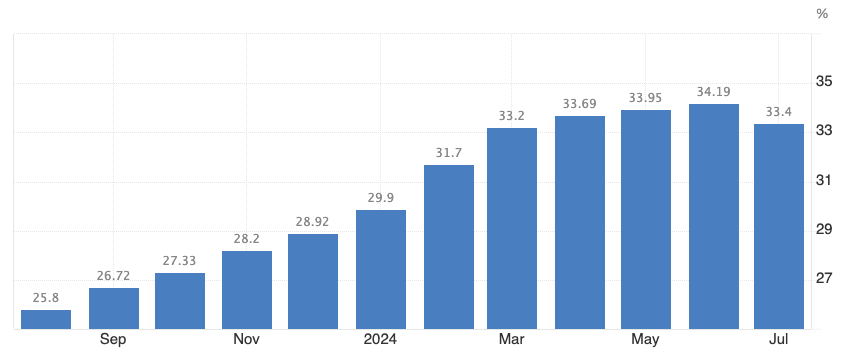Nigeria’s headline inflation rate eased to 33.4% in July 2024, slowing for the first time in almost 2 years, down from a 28-Year high of 34.19% in the previous month.
- •Food inflation, which accounts for the bulk of Nigeria’s inflation basket slowed down to 39.5%, compared to June’s reading of 40.8%.
- •Additional downward pressure came from prices of housing & utilities (29.4% vs 30.3% in June 2024), transportation (25.2% vs 25.6%) and education (16.9% vs 17.2%).
- •Annual core inflation rate, which excludes farm produce and energy, reached a new record high of 27.47% in July.
On a monthly basis, consumer prices rose by 2.28% in July, after a 2.31% increase in June.
Analysts had said June’s reading could mark the peak in inflation as currency devaluation effects start to fade.
July’s slowdown will bring some relief to frustrated Nigerians, who protested this month over cost-of-living pressures and governance issues.
Price pressures have been stoked by President Bola Tinubu’s decision to remove a decades-old fuel subsidy, devalue the naira currency and hike electricity tariffs. The reforms are aimed at lifting economic growth and shoring up public finances but have sent inflation soaring.
Nigeria’s Central Bank has increased interest rates four times this year to try to get inflation under control.
See Also:





